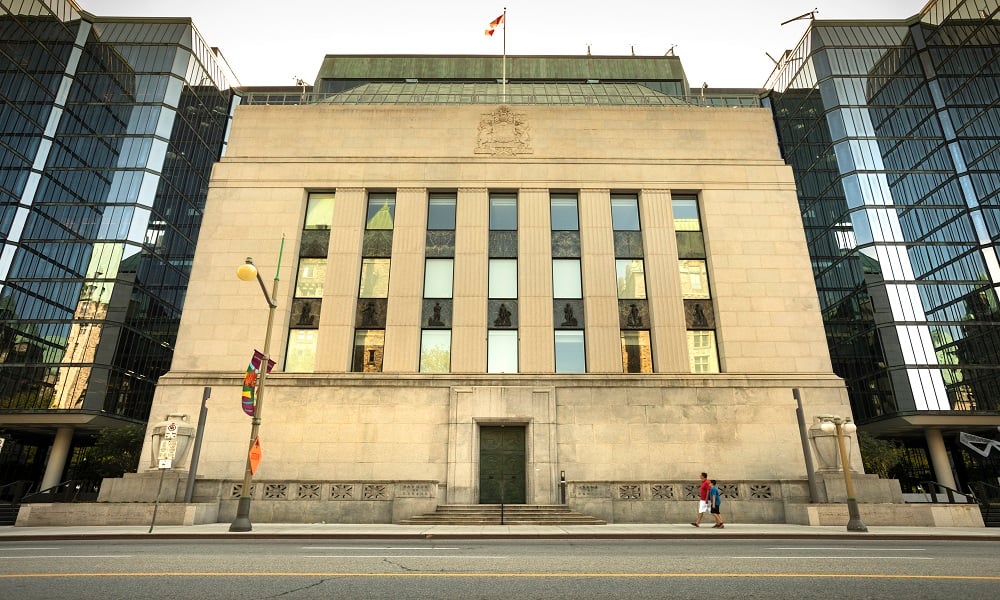Canada's central bank has a delicate balancing act as rate hikes will impact millions with elevated household debt

Canada’s interest rate hikes start today according to a panel of economists convened by Bloomberg.
All 27 financial experts believe that the Bank of Canada will increase the benchmark rate by one quarter of a percentage point when it meets today.
That will take the rate to 0.5% and begin an expected journey away from the low-rate environment we’ve become used to.
With inflation running hot, the balancing act for the bank is hiking rates to cool price acceleration without decimating the finances of millions of Canadians who are loaded up with debt.
The first increase since 2018 will likely set off one of the fastest upward trajectories for Canadian interest rates in three decades.
“A hike this week will be the first step in the most consequential tightening cycle in decades,” Royce Mendes, head of macro strategy at Desjardins Securities Inc. told Bloomberg. “Central bankers need to slow red hot inflation without causing a recession.”
The announcement at 10am eastern is expected to also include a further reduction in the central bank’s balance sheet, easing off from its huge holdings of government bonds acquired as part of the economy-saving response to the pandemic.
Housing market
One of the biggest stories of the route to higher interest rates is how it will impact the Canadian housing market.
Homebuying has been one of the most resilient parts of the economy for most of the pandemic and prices have surged amid high demand, fuelled in part by the savings built up by reduced lockdown spending.
But with millions of existing homeowners set to renew mortgages in 2022, the higher rates may be challenging, while higher rates may also exclude would-be first-timers from entering the market.
While few are expecting a significant correction for house prices, the BoC will be cognizant of the risk in causing too much disruption for a key economic driver.



